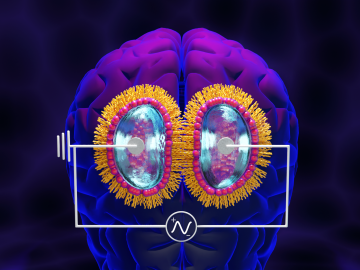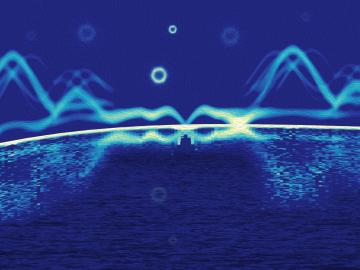
While studying how bio-inspired materials might inform the design of next-generation computers, scientists at ORNL achieved a first-of-its-kind result that could have big implications for both edge computing and human health.

While studying how bio-inspired materials might inform the design of next-generation computers, scientists at ORNL achieved a first-of-its-kind result that could have big implications for both edge computing and human health.

Scientists at ORNL used neutron scattering to determine whether a specific material’s atomic structure could host a novel state of matter called a spiral spin liquid.

Six ORNL scientists have been elected as fellows to the American Association for the Advancement of Science, or AAAS.

